brand
LEADERSHIP AND FIRSTBANK’S SUCCESSFUL TRANSITIONING TO ‘CLICK’ BANKING

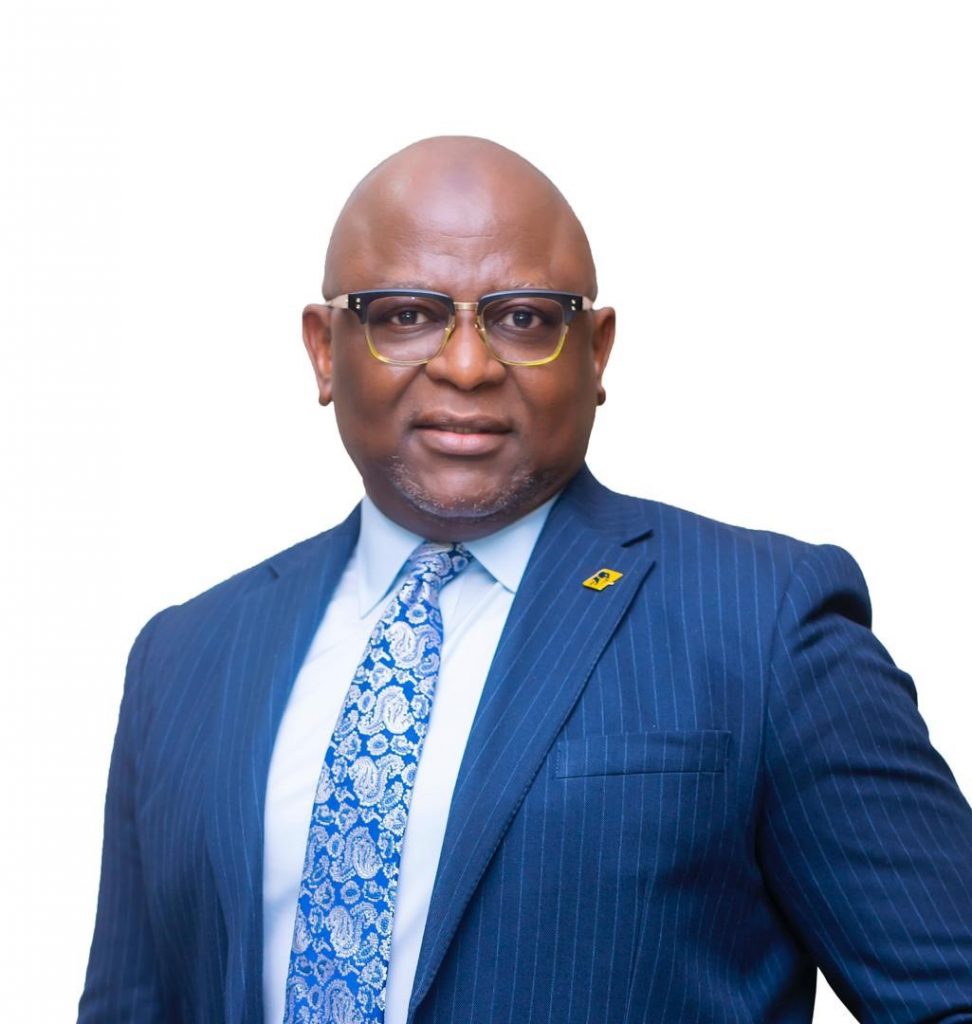 In December 2015, the share price of First Bank of Nigeria Limited was trading around N4.8 band. About seven years later, precisely last December, the value held tightly to N15, growing by over threefold amid general asset and economic doldrums.
In December 2015, the share price of First Bank of Nigeria Limited was trading around N4.8 band. About seven years later, precisely last December, the value held tightly to N15, growing by over threefold amid general asset and economic doldrums.
The steep rise in the valuation of the financial institution deviates remarkably from the average performance of FUGAZ, an acronym describing the top five Nigerian banks by market capitalisation. In the past seven years, the share prices of the leading banks appreciated by an average of 90 per cent as against over 200 per cent growth seen in FirstBank.
Deflated by the bank’s exceptional performance, Access Holdings, GTCO, UBA and Zenith stocks posted about 60 per cent growth. The performance of the entire banking sector also flattens out when compared with FirstBank, which raises questions about the fundamentals of the bank and its growth trajectory.
In terms of inflation-adjusted return on investment, FirstBank shareholders are among the investors that emerged from the turbulent years with a positive real rate of return. Was it a stroke of luck? Does the market reward poor performance?
Of course, stocks sometimes thrive on mere greater fool theory, thus triggering an asset bubble. But the positive share movement of the premier bank is but only one of the many high growth indicators.
In first quarter of 2023, the bank’s non-performing loan (NPL) ratio came down far below the five per cent regulatory threshold, which means so much difference when placed in a historical context. As at December 2015, its NPL ratio was over 45 per cent, a telling reflection of the level of effort that went into cleaning its books in the intervening years. For analysts, the cleanup, which was done without raising fresh capital, explains what disciplined, focused and forthright leadership could achieve.
On cleanup process, the Bank CEO, Dr. Adesola Kazeem Adeduntan, said the institution was “its self-created AMCON”, referring to the Asset Management Corporation of Nigeria set up in the aftermath of the 2008 financial crisis to buy up the threatening toxic assets of Nigerian banks.
Indeed, what the management of the bank has done in the past seven years is not remarkably different from the role of AMCON, since its creation in 2011, except that the former raised fresh capital for its humongous responsibility whereas the bank did not. Also, the FirstBank experience was internal; and it did face a tougher task in terms of the proportion of its assets that had gone bad.
At the height of the financial crisis in 2008/2009, the NPL ratio rose to 37.3 per cent, from 9.9 per cent on record in 2007. On the other hand, the premier bank was carrying over 45 per cent NPL on its book as at January when Adeduntan took the reins of its leadership as the managing director.
All through the process, the bank did not raise fresh capital for the housecleaning programme, meaning the shareholders’ value was not diluted in the process.
Investors may have also kept in view other impressive qualitative metrics such as pre-tax return on equity (RoE), a measure of net income in proportion to shareholders’ equity, which moved from 0.6 to 17.3 per cent at the end of last year’s financial cycle. Also, pre-tax Return on Asset (RoA) climbed from 0.1 to 1.6 per cent while the cost of risk was also down to 1.7 per cent last year, from 10 per cent recorded in its 2015 financial.
At the end of this month, Adeduntan would have spent 7.5 years in office and he would be 30 months short of the tenure limit requirement. Already, he is the longest-serving chief executive of the institution, which is known for its short-term leadership tradition. Casual observers consider him as fortunate, but deep analysts think differently – the bank has been fortunate to have had him.
The lender, which predated ‘Nigeria’, and played the most active financial role in the structuring of the country’s pre- and post-Independence economy, may have just got its groove back under the current management. The books are clean and the NPL is trending downward, faster than the industry average. But beyond, its top and bottom lines are all out of the woods and climbing.
Its total assets, for instance, have increased by 167 per cent in the past seven years, meaning that its asset size has almost tripled, which also outperformed the industry growth. In terms of liquid asset to total asset ratio, it is also ahead of most of its peers. This suggests that while the quality of its assets has increased remarkably, with the NPL ratio falling by 88 per cent in less than a decade, the bank’s asset growth has not stalled, which speaks volumes about the quality of its risk management approach.
Currently, FirstBank had in its portfolio of about 41 million customer accounts, an extraordinary 276 per cent lift from its 2015 record. The figure is about 30 per cent of total bank accounts held by Nigerian banks. Customer depositors also jumped by as much as 153 per cent to 10.6 trillion.
The growth seen is also robbing off on the bottom line with the profit before tax (PAT) increasing by N137 billion in the period. That translates to over 1300 per cent, probably contributing majorly to the sudden spike in the share of the bank.
Perhaps, owing to its long history dating back to when banks were mostly associated with corporate and public sector financial infrastructure, FirstBank was mostly seen as a go-to for savers and borrowers. But that seems to have changed with its many smart digital channels. For its management, that is deliberate.
“Our goal is to transform the bank from lending-based to a transaction-based financial institution,” the chief executive pointed out.
Yes, its transformation is no longer a dream. From zero share of corporate e-bill payments, it has shoved its competitors behind to take hold of 42 per cent of the market. The bank, in the words of its managing director, has pivoted from brick and mortar to “brick and click”, making payment seamless and a click away for individuals, corporate as well as public entities.
“We have built a very formidable trade and cash management platform that we call FirstDirect, which allows corporate banking customers, from the comfort of their home, to initiate a trade transaction and complete it. You have a single view, giving you an interface where you can add your different accounts and transact,” Adeduntan explained.
FirstMobile, a standalone digital bank, has also emerged as a household name in the financial technology ecosystem. In 2015, when the platform was still at its teething age, its users were about 60,000 a number that soared to over six million (a growth of over 10,000 per cent). That has contributed immensely to the changing tradition of banking with FirstBank, as about 85 per cent of its transactions are now initiated via digital windows.
FirstMobile appears to have hit the bull’s eye in the bank’s reinvention drive and effort to appeal to younger demographics. But the platform itself is merely one of the potpourris of telecommunication-driven initiatives it has taken on to get the young depositors on board. FirstOnline users have also grown from about 90,000 to over one million within the timeframe just as its USSD, which targets feature phone users, is even more successful with users increasing by close to 3,000 per cent in seven years to 14.7 million.
Overall, its digital banking has evolved in both volume and public impression. Ease, convenience and reliability have moved the customer base from its tiny 0.6 million to 22 million.
Indeed, FirstBank is transmuting into a transaction-led institution. Last year, the volume of transactions hit 17 million, 8.5 times what it was in 2015 when it experienced some corporate turbulence. But the growth is not only in volume terms, as its non-interest income ratio hit 40.6 per cent for the first time last year, which aligns with the strategic direction of the current management in weaning the group from excessive credit risk exposure.
Over the years, most Nigerian banks have consolidated their global outlook. FirstBank has led the pack with its 40-year United Kingdom subsidiary, which is bigger than some of its competitor wholesale operations back home. But some of the pro-offshore Nigerian banks had been accused of extroversion and ego-seeking as most of the outposts were nothing but cost centres.
In the past few years, the assumption has been deflated; and the performance of the African subsidiaries of FirstBank is among what could be changing the tide. Before the 2015 change of the guard, the subsidiaries’ operations left had created a gaping hole in the PBT of the consolidated account. Last year, they contributed a combined 21.3 per cent to the group’s pre-tax profit.
But that was not because there was no risk out there. In the heat of the Ghanaian government debt crisis, Adeduntan revealed, FirstBank took the least impairment among Nigerian banks that were exposed to the crisis “not because we saw it coming but because we have consistently done the right thing and adopted best risk management practice”.
There is also a humane side to his management approach. Today, FirstBank is among the highest-paying Nigerian banks and offers the most attractive conditions of service, including training, accelerated career growth and many more. In 2021, its efforts were compensated with the Great Place to Work Award. Today, the once-touted conservative bank is attracting young and upwardly mobile professionals with the average age of its employees estimated at 39 years.
Being the longest-serving managing director of the pre-colonial financial behemoth, Adeduntan has the leverage of time and experience to enforce its transformational agenda. But he had also prepared for the job. At KPMG where he co-pioneered the firms’ financial risk management advisory services, he trained in almost all areas of human endeavors – presentation, people management, business writing and all sorts. On assumption of office, he was bold and firm in his decision to headhunt, institute new work culture, clear career growth blockages and challenged the status quo.
His courageous outing in the past seven and half years has transformed an institution once considered one of least prepared for the age of “brick and click” banking into the Usain Bolt of the emerging financial technology space.
brand
Fidelity Bank Named “Nigeria’s Best Private Bank” at Euromoney Awards
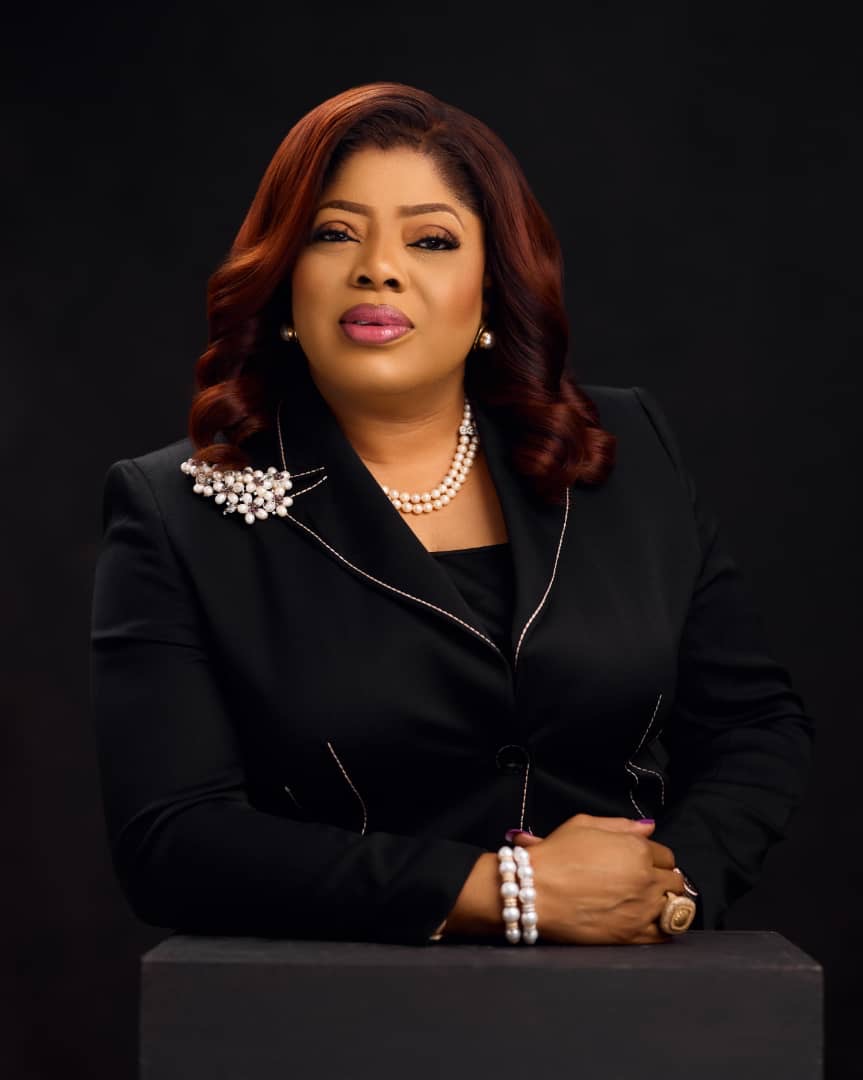
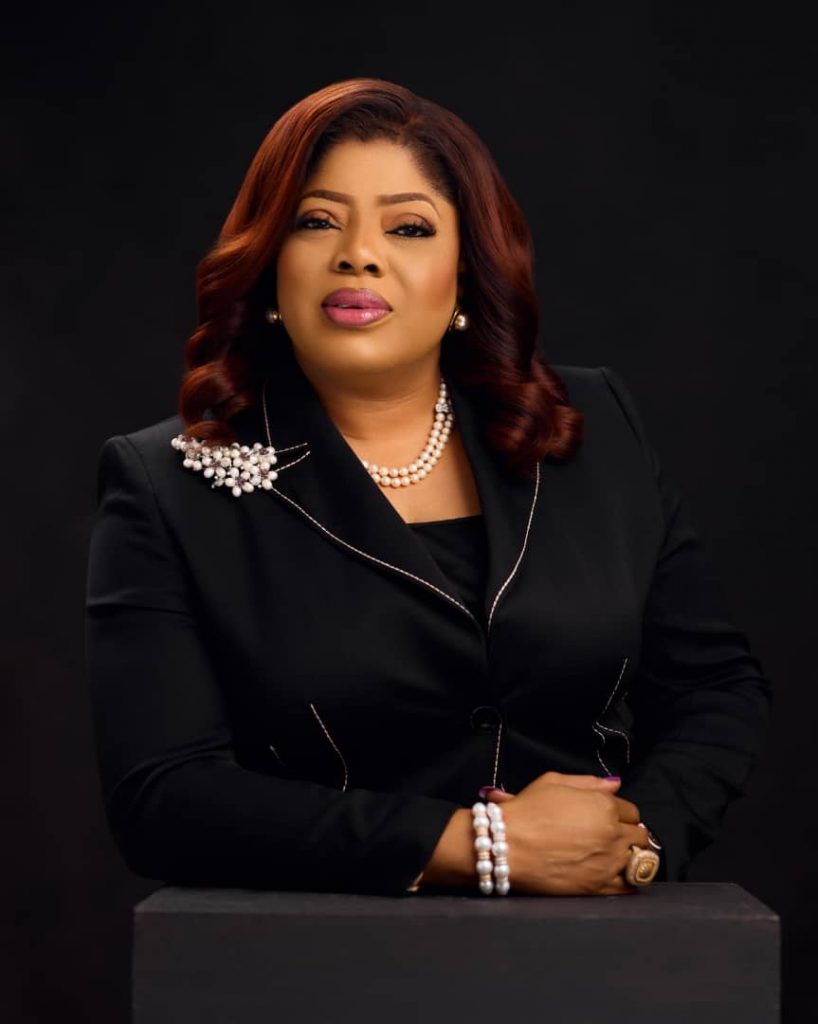 Tier one bank, Fidelity Bank PLC, has been named “Nigeria’s Best Private Bank” at the prestigious Euromoney Awards 2025. The recognition was formally unveiled at the awards ceremony held recently at The Savoy in London.
Tier one bank, Fidelity Bank PLC, has been named “Nigeria’s Best Private Bank” at the prestigious Euromoney Awards 2025. The recognition was formally unveiled at the awards ceremony held recently at The Savoy in London.
The Euromoney Awards for Excellence are prestigious annual honors and a benchmark for excellence in the global banking and finance industry. Established by Euromoney magazine, the awards highlight outstanding performance, innovation, leadership, and service excellence across various financial sectors and regions.
Commenting on the award, Managing Director and Chief Executive Officer of Fidelity Bank PLC, Dr. Nneka Onyeali-Ikpe said, “We are truly honored to be recognized by Euromoney as Nigeria’s Best Private Bank. This award is a testament to the hard work and dedication of our staff as well as our strong commitment to delivering premium wealth management solutions, personalized financial advisory, and superior client service to high-net-worth individuals in Nigeria and beyond.”
The Euromoney Awards are among the most highly respected in the global financial industry. Winning such an award for its private banking business further builds on Fidelity Bank’s growing reputation as one of Nigeria’s most trusted and customer-centric financial institutions.
According to a statement on Euromoney’s website, “The bank’s commitment to providing specialised credit solutions also sets it apart. Clients benefit from tailored lending options, including asset-backed lending, real estate financing, and customised credit facilities. These solutions are structured to support complex financial needs while ensuring flexibility and ease.”
Fidelity Bank Plc is a full-fledged commercial bank with over 9.1 million customers who are serviced across its 251 business offices and various digital banking channels in Nigeria and the United Kingdom.
The Bank is the recipient of multiple local and international Awards, including the 2024 Excellence in Digital Transformation & MSME Banking Award by BusinessDay Banks and Financial Institutions (BAFI) Awards; the 2024 Most Innovative Mobile Banking Application award for its Fidelity Mobile App by Global Business Outlook, and the 2024 Most Innovative Investment Banking Service Provider award by Global Brands Magazine. Additionally, the Bank was recognized as the Best Bank for SMEs in Nigeria by the Euromoney Awards for Excellence and as the Export Financing Bank of the Year by the BusinessDay Banks and Financial Institutions (BAFI) Awards.
brand
Access Holdings Records 88% Growth in Gross Earnings to N4.878 Trillion

 Access Holdings PLC (“the Group”) (Bloomberg: ACCESSCO), a leading African financial services group, today, announced its audited financial results for the full year ended December 31, 2024. The Group delivered 88% year-on-year growth in gross earnings, rising from N2.594 trillion in 2023 to N4.878 trillion in 2024. The strong performance was driven by diversified income streams, with interest income growing by 110% to N3.480 trillion and non-interest income increasing by 47.8% to N1.397 trillion, supported by robust retail banking activities, digital expansion, and a dynamic trading strategy.Profit before tax (PBT) increased by 19% to N867.0 billion, while profit after tax (PAT) rose to N642.2 billion, despite inflationary and macroeconomic challenges. Total assets grew by 55.5% to N41.498 trillion, and customer deposits rose by 47% to N22.525 trillion. Shareholders’ funds also increased by 72%, reaching N3.760 trillion.In 2024, the Group made significant social and environmental impact across the continent, touching millions of lives and earning multiple industry accolades. Through various corporate social investment initiatives in education, entrepreneurship, health, and the environment, the Group reached over 21 million individuals across Africa. Its employee wellness programmes also covered 28,000 staff across operating entities. Access Bank, the flagship subsidiary, through its W-Initiative, disbursed loans to over a million women-led SMEs, advancing financial inclusion and gender empowerment.The Group’s efforts attracted prestigious recognition and awards, including three Euromoney Awards for Excellence (notably ‘Best Bank for ESG’); International Finance Award for ‘Most Innovative Bank for Community Development and Community Engagement’; and World Economic Magazine Award for ‘Most Sustainable Bank’.In terms of economic sustainability, Access Bank recorded strong strides through its Economic, Social and Governance (ESG) programmes. It facilitated $437.42 million in DFI inflows to support MSMEs across Africa, disbursed 1.6 million digital loans to low-income individuals, and booked its first N1.4 billion diaspora mortgage loan.The Group also achieved a 13.4% reduction in operational emissions, planted 57,302 trees, and enabled solar power adoption for 226 homes and businesses. Its headquarters was awarded the IFC EDGE (Excellence in Design for Greater Efficiencies) Green Building Certification for sustainable design and construction
Access Holdings PLC (“the Group”) (Bloomberg: ACCESSCO), a leading African financial services group, today, announced its audited financial results for the full year ended December 31, 2024. The Group delivered 88% year-on-year growth in gross earnings, rising from N2.594 trillion in 2023 to N4.878 trillion in 2024. The strong performance was driven by diversified income streams, with interest income growing by 110% to N3.480 trillion and non-interest income increasing by 47.8% to N1.397 trillion, supported by robust retail banking activities, digital expansion, and a dynamic trading strategy.Profit before tax (PBT) increased by 19% to N867.0 billion, while profit after tax (PAT) rose to N642.2 billion, despite inflationary and macroeconomic challenges. Total assets grew by 55.5% to N41.498 trillion, and customer deposits rose by 47% to N22.525 trillion. Shareholders’ funds also increased by 72%, reaching N3.760 trillion.In 2024, the Group made significant social and environmental impact across the continent, touching millions of lives and earning multiple industry accolades. Through various corporate social investment initiatives in education, entrepreneurship, health, and the environment, the Group reached over 21 million individuals across Africa. Its employee wellness programmes also covered 28,000 staff across operating entities. Access Bank, the flagship subsidiary, through its W-Initiative, disbursed loans to over a million women-led SMEs, advancing financial inclusion and gender empowerment.The Group’s efforts attracted prestigious recognition and awards, including three Euromoney Awards for Excellence (notably ‘Best Bank for ESG’); International Finance Award for ‘Most Innovative Bank for Community Development and Community Engagement’; and World Economic Magazine Award for ‘Most Sustainable Bank’.In terms of economic sustainability, Access Bank recorded strong strides through its Economic, Social and Governance (ESG) programmes. It facilitated $437.42 million in DFI inflows to support MSMEs across Africa, disbursed 1.6 million digital loans to low-income individuals, and booked its first N1.4 billion diaspora mortgage loan.The Group also achieved a 13.4% reduction in operational emissions, planted 57,302 trees, and enabled solar power adoption for 226 homes and businesses. Its headquarters was awarded the IFC EDGE (Excellence in Design for Greater Efficiencies) Green Building Certification for sustainable design and construction
standards.In addition, Access employees contributed 228,500 volunteer hours to various community development programmes, reinforcing the Group’s commitment to inclusive and purpose-driven impact.The Group is focused on delivering sustainable returns to shareholders, while reinvesting in innovation, infrastructure, and cross-border expansion. Its banking subsidiary launched operations in Hong Kong, received regulatory approval in Malta, and successfully integrated its operations in Zambia and Tanzania, expanding its global footprint.Access Bank posted significant gains across all performance metrics, with interest income growing by 110% and fees and commissions rising by 81%. International subsidiaries contributed 48.5% to the banking segment’s PBT, demonstrating strong execution across key markets.In 2024, Access Holdings also became the first institution to meet the Central Bank of Nigeria’s recapitalisation directive, raising 351 billion through a rights issue. The₦ proceeds are being strategically deployed to strengthen digital infrastructure, enhance liquidity, and fuel long-term growth.Looking ahead, Access Holdings remains committed to building a more inclusive, sustainable, and profitable future, delivering delivering value not just to shareholders, but to society and the environment at large.
brand
JIM OVIA ADMITTED TO THE FREEDOM OF THE CITY OF LONDON
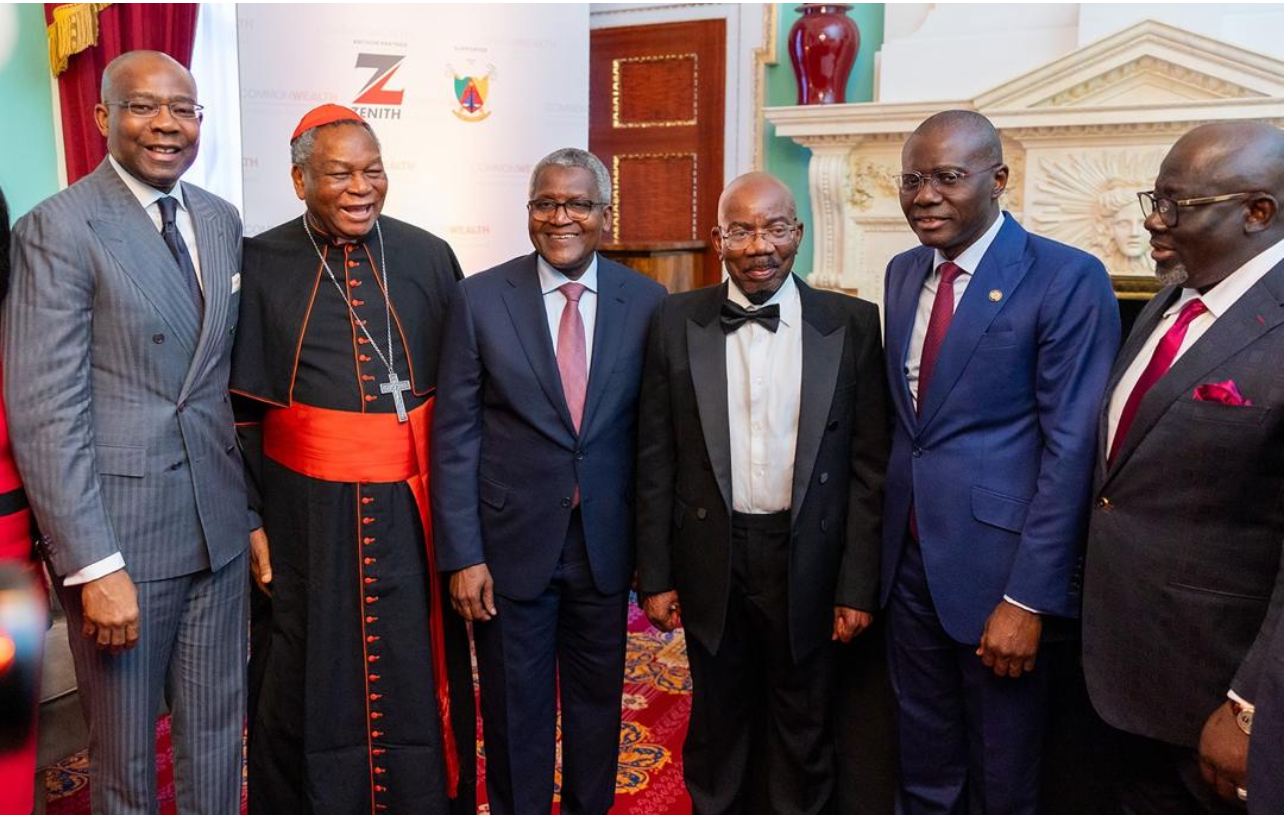
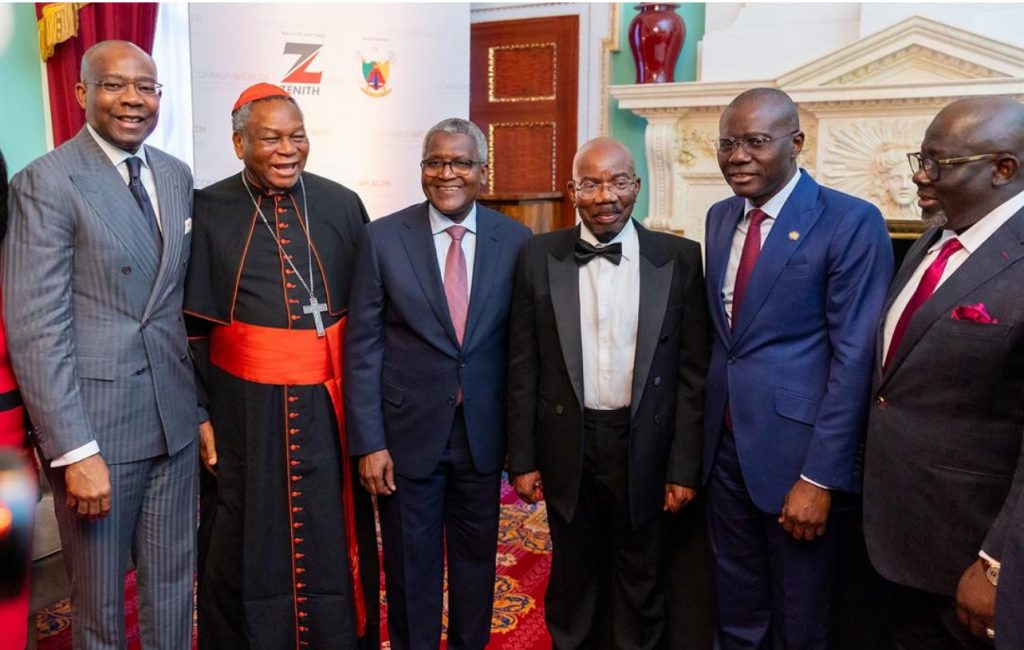 L-R: Chairman, Access Holdings Plc, Aigboje Aig-Imoukhuede, CFR; His Eminence John Cardinal Onaiyekan; President of Dangote Group, Alhaji Aliko Dangote, GCON; Founder and Chairman of Zenith Bank Plc, Jim Ovia, CFR; Governor of Lagos State, Mr. Babajide Sanwo-Olu; and Governor of Delta State, Rt.Hon. (Elder) Sherrif Oborevwori, during the admission of Jim Ovia to the Freedom of the City of London in the United Kingdom, on Monday.
L-R: Chairman, Access Holdings Plc, Aigboje Aig-Imoukhuede, CFR; His Eminence John Cardinal Onaiyekan; President of Dangote Group, Alhaji Aliko Dangote, GCON; Founder and Chairman of Zenith Bank Plc, Jim Ovia, CFR; Governor of Lagos State, Mr. Babajide Sanwo-Olu; and Governor of Delta State, Rt.Hon. (Elder) Sherrif Oborevwori, during the admission of Jim Ovia to the Freedom of the City of London in the United Kingdom, on Monday.
The Founder and Chairman of Zenith Bank Plc, Jim Ovia, CFR, has been admitted to the prestigious Freedom of the City of London in a distinguished ceremony which held at the Mansion House, City of London on Monday, April 7, 2025. This prestigious accolade is a testament to Mr. Ovia’s exceptional contributions to the global financial landscape, unwavering commitment to fostering economic development, and dedication to philanthropic endeavours that have positively impacted countless lives.The Freedom of the City of London, a time-honoured tradition dating back to the 13th century, is one of the oldest surviving ceremonies in the United Kingdom. Historically, it granted freemen certain rights and privileges within the city. Today, it stands as a symbolic recognition of individuals who have made outstanding contributions to London or the wider society. This honour places Mr. Ovia among a distinguished group of recipients, which includes notable figures from various fields such as Nelson Mandela, Bill Gates, Sir Winston Churchill, Desmond Tutu, Harry Kane, Morgan Freeman and Ian Wright.Commenting on his new status as a Freeman of the City of London, the distinguished honoree, Jim Ovia, CFR said “It is indeed a great honour to be admitted to the prestigious Freedom of the City of London. This is not just a recognition of my personal achievements, but also a testament to the tireless efforts of the entire Zenith team who have worked diligently to establish our institution as a leading force in global finance. I am proud to be part of a legacy that celebrates innovation, excellence and the spirit of entrepreneurship. I dedicate this to the people of Nigeria and Africa who continue to inspire me with their resilience and determination. I look forward to continuing to play a role in shaping the economic landscape of our great continent and beyond.”Joining the nation in congratulating Mr. Ovia, President Bola Tinubu, through a press statement by the Special Adviser to the President on Information and Strategy, Bayo Onanuga, commended Mr. Ovia for being a distinguished ambassador of the nation’s private sector. He described the honour as a fitting recognition of his exceptional contributions to business, innovation, and technology, as well as for his role in shaping Nigeria’s financial landscape and strengthening economic ties between Africa and the rest of the world. According to him, “This honour is a testament to your unwavering commitment to excellence, your pioneering role in the growth of the financial services sector in Nigeria, and your visionary leadership that continues to inspire generations. As an accomplished entrepreneur and advocate of innovation-driven development, your recognition in the City of London affirms the global relevance of Nigerian excellence and enterprise”.Dignitaries at the ceremony include Former President of Nigeria, Chief Olusegun Obasanjo, GCFR; Governor of Lagos State, Mr. Babajide Sanwo-olu; Governor of Delta State, Rt.Hon. (Elder) Sherrif Oborevwori; Governor of Enugu State, Dr. Peter Mbah; President of Dangote Group, Alhaji Aliko Dangote, GCON; Minister of State for Finance, Dr. Doris Uzoka-Anite; Minister of Industry, Trade and Investment, Dr. Jumoke Oduwole, MFR; Minister of State for Foreign Affairs, Bianca Odumegwu-Ojukwu; Oba of Oniru, Oba Abdulwasiu Lawal; Group Managing Director, TGI Group of Companies, Rahul Savara; Obi of Onitsha, Igwe Nnaemeka Alfred Achebe, CFR, and His Eminence John Cardinal Onaiyekan, who joined Zenith Bank Executives in celebrating this significant milestone.This well-deserved recognition rides on the back of many other prestigious awards that Mr. Ovia has received for his outstanding contributions to banking, education and philanthropy including conferment of Commander of the Federal Republic (CFR) & National Productivity Order of Merit (NPOM) Award in 2022 by the Federal Government of Nigeria. He was also named the Banker of the Year in 2007 and Titan of the year in 2024 by ThisDay Newspaper, and received the African Business Leader Award from the Africa-America Institute. He received honorary degrees from the University of Lagos as well as from the University of Nigeria, Nsukka and was recognized by Forbes Africa as one of the most influential figures in banking.
-

 news4 years ago
news4 years agoUPDATE: #ENDSARS: CCTV footage of Lekki shootings intact – Says Sanwo – Olu
-

 news1 year ago
news1 year agoEnvironmental Pollutions : OGONI COMMUNITY CRIES OUT, THREATENS TO SHUT DOWN FIRSTBANK,SHELL OIL COMPANY OPERATIONS FOR NOT PAYING COURT AWARD
-

 news2 weeks ago
news2 weeks agoBreaking : TInubu appoints Bashir Ojulari as new CEO group of NNPC and GMD mele kyari get sacked, Says Onanuga
-
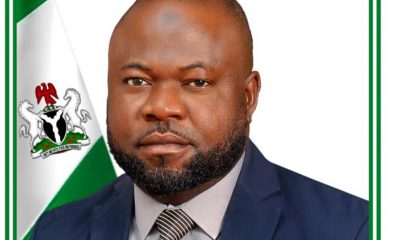
 interview3 weeks ago
interview3 weeks agoNIGERIA MECHANIZED AGRO EXTENSION SERVICE PROJECT, A STRATEGIC MOVE TO ALLEVIATE POVERTY – DR. AMINU ABDULKADIR
-

 news3 weeks ago
news3 weeks agoUpdate : Fubara ordered bombing of Rivers Assembly, I am not under duress I resigned, Says ex-Rivers HoS Nwaeke
-

 news3 weeks ago
news3 weeks agoTinubu commended Nandap for her leadership, extends Comptroller-General tenure till 2026, says Onanuga
-
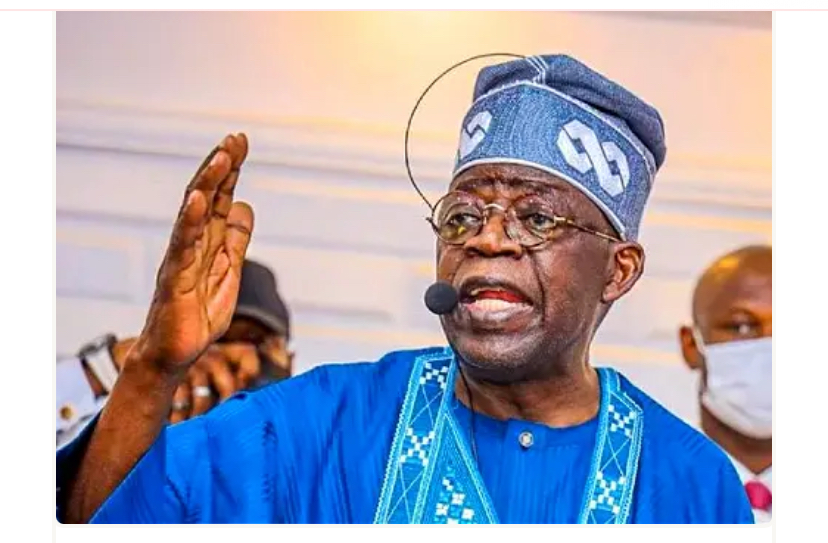
 news5 days ago
news5 days agoNothing new in FBI report on Tinubu, says Onanuga
-

 news1 week ago
news1 week agoUpdate : FG confirms continuation of crude, refined product sales in Naira initiative, Says Wale Edu


